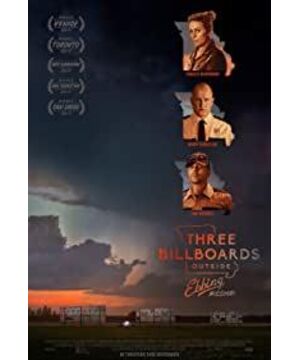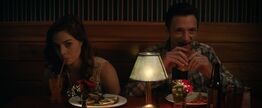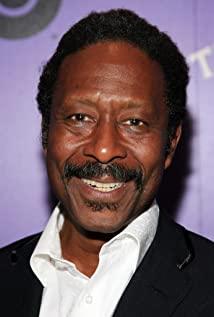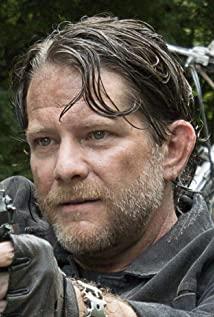When the film was finished before the screening of the Venice Film Festival, three billboards standing on the side of the desolate road came into view, and the song "The Last Rose of Summer" sounded, we knew that the one who had received the influence of Celtic culture since childhood Martin MacDonald is back.
The story takes place in a small town in the United States. The heroine played by Francis McDormand is a mother who lost her daughter. However, the case of her daughter's murder has not been over yet, and the murderer is still at large. Seeing the hope of solving the case slowly faded, the conflict between this determined mother and the inactive policeman in the small town became increasingly acute. She borrowed three billboards to question the sheriff in charge of the case. There was an uproar, and many characters were involved in bloody and violent disputes one after another.
This is a typical Martin Macdonald story. But it does not have the humorous context of the previous film "Seven Neuropathies", in which the protagonists experienced a terrible dispute just because of a dog. Instead, the film returns to the ridiculous sadness of the debut film "The Killer Has No Holiday". In his debut novel, he does not portray how the killers perform their tasks, but describes the "vacations" of the two protagonists in Bruges. Even though the killers are far away from the task, the killing and the plasma still follow each other. Behind the character played by Riel who is born with joy, we can feel the core of the tragedy.
The characters of "Three Billboards" have a strong duality. Although this mother is standing on the high ground of legal principle, the sheriff in charge of the case suffers from cancer and put her in a moral trough. Behind this mother's strong and stubborn character, there is also the side of doing things without regard to the consequences. It is this impulse that brings the incident into an unexpected situation. At the same time, the most touching segment of the movie is the only episode she reveals affectionately. When she sees a deer under the billboard, it reveals the abundance of maternal glory that belongs to a woman, which can be described as moving.
Francis McDormand fits perfectly with this role. As the heroine of "Ice Blood Storm" and an Oscar winner, she uses vivid acting skills to interpret the complex layers of this character.
Of course, the characters impress the audience. Thanks to Martin MacDonald’s good at shaping characters, he can portray the three-dimensional image of the ex-husband’s current girlfriend in a few strokes: one who often talks about some truths, but there is no truth. The vase that I only learned is a good match for a violent ex-husband. Martin has always been fair to good and evil.
In police detective Dixon, we can see his insights and attitudes towards real social issues. While this dignified police detective shows a deep Oedipus complex, he also brings out a distinct tendency towards homophobia and violence. The rich details allow us to infer that he is not only homophobic, but he is also gay. His mother knows her son well. The addition of Peter Dinglucky also continues Martin's continued attention to the dwarf crowd. Dinglucky calls himself dwarf and has no "suicidal tendency".
Therefore, in the viewing process, the different cultural context will cause obstacles to the audience. The audience must concentrate, because every line has a subtext, and every humor has a double meaning behind it. Martin likes to carry all kinds of private goods, including metaphors, cultural symbols, slang, puns, embarrassing situations, funny situations, etc., to create suitable various settings for the characters to enrich the drama of the characters.
Because of Martin's dramatic background, there are some toughness in the camera transition, like a drama change. Its image expression is not where it stands out. Because Irish dramas include the influence of Joyce, Wilde, Yeats, etc., it is necessary to focus on the literary nature of the story. The image of the three billboards itself is a fairly classical theatrical design, with a clear metaphor of the times-the variables that a depressed society brings to individual humanity. The audience's judgment of each character should not be separated from this metaphor.
I was "chased and killed" by friends in the message area before, and deleted the general background sentence, "It was determined by the obsolescence date of the three billboards in 1986 that the story happened after the 1986 stock market disaster", and now it is added. Although this is a story that can be used for mobile phones and Google, it still cannot escape the gloom of the 1980s. It was the beginning of the solidification and intensification of the American class. The conservative government "promulgated a large number of laws in the 1980s", but even people spit on the environment. Rule by law, everyone in this small town is morally committed to this mother, but when she expresses her anger, even the priest comes to stop her. It is such a small town full of good people, but it has been slow to advance a case. When society is stubborn as a block of cement, the meaning of anger is to break its stubbornness.
As a representative of "face-to-face drama" in Western drama circles, Martin Macdonald does not evade violence and blood itself, but chooses to directly portray the dark parts of human nature such as anger, violence, and prejudice with absurd methods, with a lot of foul language in his lines. Use the edge of evil to portray evil, use violence itself to counter violence, and use crime types to counter crime types.
The so-called "face" is to take the things that we have done in our lives that will make ourselves ashamed and blush in retrospect, and those elites who reject the things that use them in art, put them on the stage, nakedly arousing the shame of the audience. , Reflection.
He combined humor, absurdity, pain, sympathy, humanity, and virtue to create a black humor film that is constantly inverted throughout the whole process, makes people cry and laugh, is full of dramatic tension and arouses audiences' thoughts.
The movie stopped at the right moment, just right. Is it a distant question mark waiting for the hero and heroine, or a life-and-death shopping? I don’t know, it’s no longer in the shadow of the billboards, and it’s not enough. It brings the universality of art. This small town not only exists in the United States, but can also exist in any era and any corner of the world.
Martin Macdonald is no stranger to China. In 2011, his drama "Pillow Man" was staged in Beijing and Shanghai, and it also conquered a large number of Chinese theater fans, including me.
Finally, I want to say that what shines the most is the creator's use of music. He has a good taste in music and reveals a deep sense of nostalgia in his bones. "The Last Rose of Summer" echoes the theme of the movie. The lyrics "When the one you love is gone, who wants to be alone in this dark world" is also the profound tragedy of the heroine.
song list:
Last rose of summer, an Irish folk song, music masters Beethoven and Mendelssohn are very fond of it;
Buckskin Stallion blues, a folk song from Townes Van Zandt;
Chiquitita, the classic masterpiece of the Swedish band Abba;
His mater`s voice, a nice folk song from the talented monster of folk band;
Walk away Renee, a popular song from the African American group Four Tops;
The Night They Drove Old Dixie Down, one of the representative songs of root rock.
View more about Three Billboards Outside Ebbing, Missouri reviews











